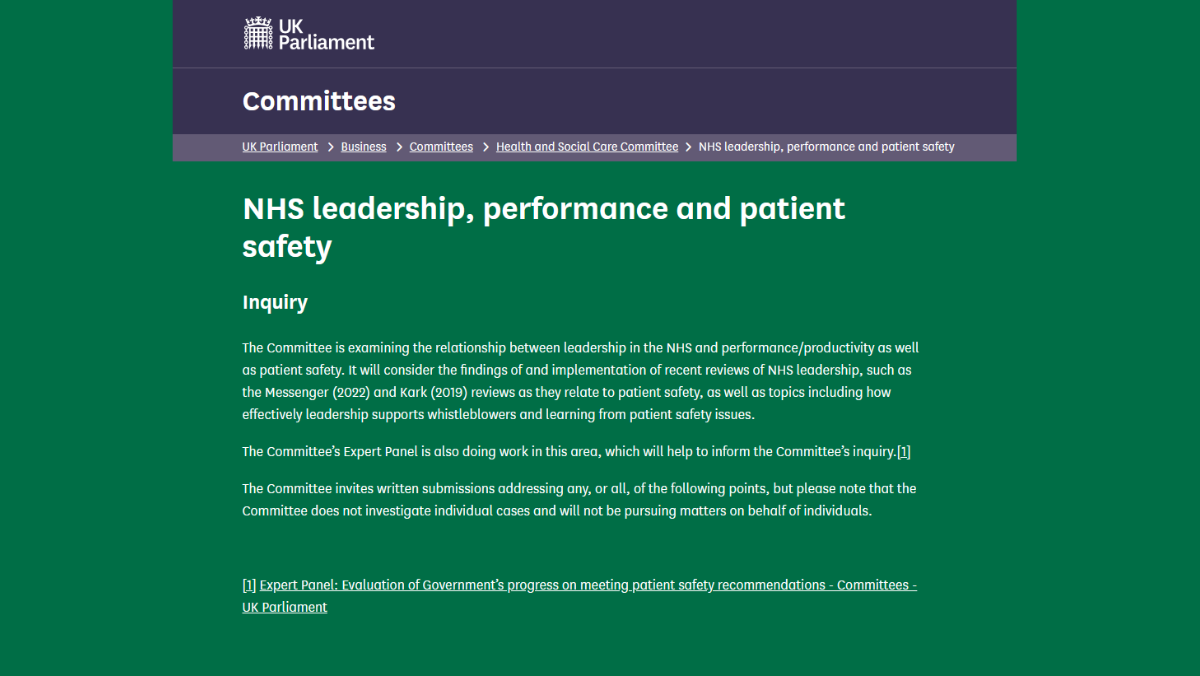
Published Evidence to the Parliament Inquiry on 'NHS Leadership, performance and patient safety'.
Written evidence submitted by Dr Wen Wang (University of Leicester), Dr Jennifer Creese (University of Leicester), Professor Roger Seifert (Keele University), Professor Carolyn Tarrant (University of Leicester) and Professor Natalie Armstrong (University of Leicester)
24 April 2024
Our written evidence to the UK Parliament inquiry on ‘NHS Leadership, performance and patient safety’ (7th March 2024) was published today. For the full report, follow this link to the parliament website.
How effectively does NHS leadership encourage a culture in which staff feel confident raising patient safety concerns, and what more could be done to support this?
Our main findings:
- The levels of NHS Trust staff who feel confident in raising patient safety concerns at work (speak-up), on average, increased from 71% in 2018 to 76% in 2021, then decreased to 73% in 2022.
- The panel data shows that when Trusts have a culture where leaders (at all levels) involve staff in decision-making and act on staff concerns, including eliminating workplace violence towards staff, this is positively associated with speak-up. Improvement during 2018-2020 may be explained by initial results from the annual NHS Staff Survey holding senior leaders to account over acting upon staff feedback; the deterioration since 2021 may reflect the removal of these monitoring from subsequent surveys.
- Our qualitative analysis reveals that staff views of leaders’ willingness to listen to their concerns are associated with staff perceptions of whether their NHS Trust is safe for patients and staff.
Our recommendations (3Rs)
- Responsibility: Reinstate monitoring senior leaders act on staff feedback including through staff survey
- Responsiveness: Demonstrate that NHS managers and leaders are listening to, acting upon concern raised by staff, and communicating actions taken.
- Recognition: Recognise the challenges faced by front-line workers who feel less able to speak up for safety, promoting a culture in which speaking up is welcome, acted upon and safe for all.
The full evidence document is published on the UK Parliament website: